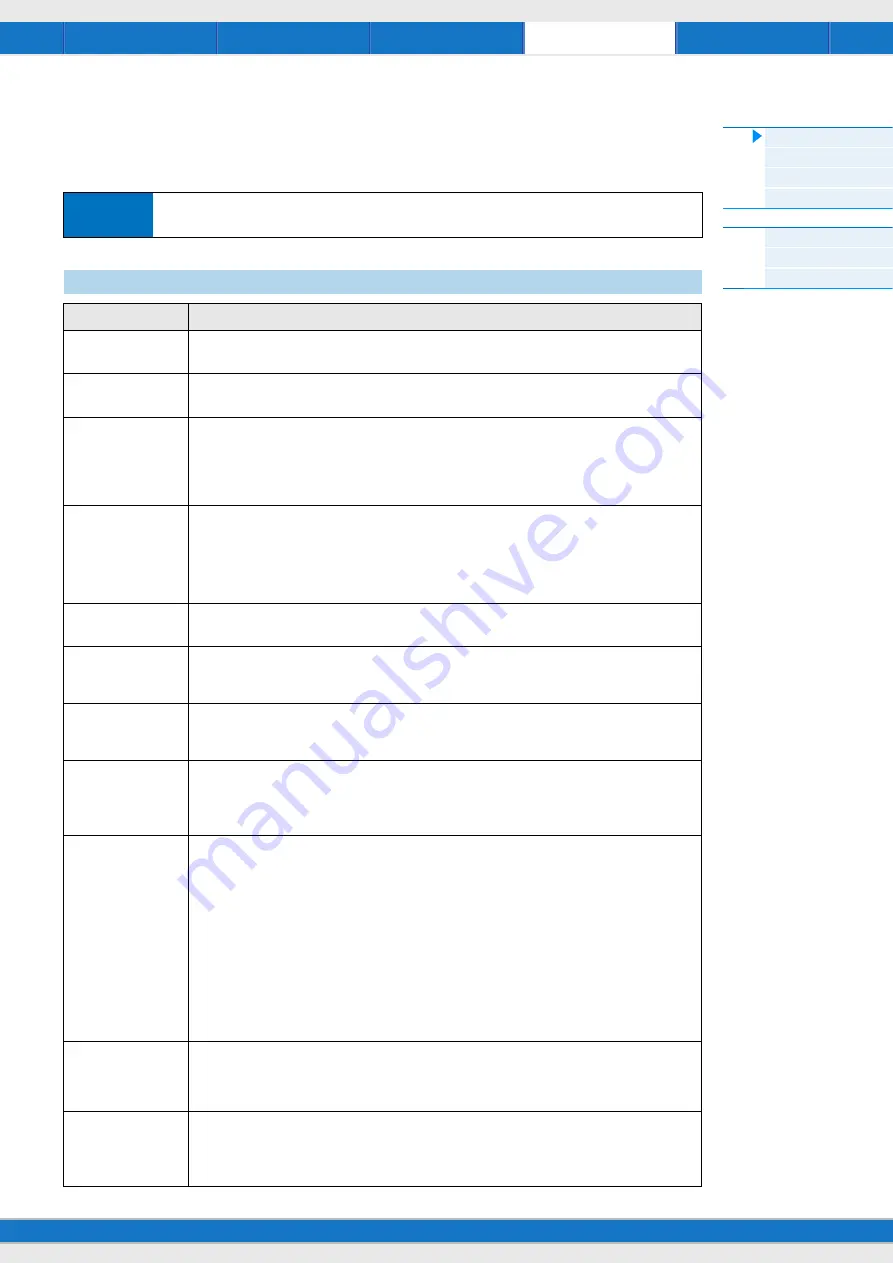
MX49 MX61 MX88 Reference Manual
64
Utility
In the Utility display, you can set parameters that apply to the entire system of the instrument. To return to the
Performance display after making settings, press [EXIT].
Operation
Press [UTILITY]
Select desired display for editing by using the Cursor [
u
]/[
d
] buttons
Press
[E
N
TER]
Edit parameters in selected display
General
Parameter
Description
MasterVolume
Determines the overall volume of the instrument.
Settings:
0 – 127
Note Shift
Determines the amount (in semitones) by which the pitch of all notes is shifted.
Settings:
-24 – +0 – +24
Tune
(Master tune)
Determines the fine tuning of the instrument’s overall sound (in 0.1 cent steps).
Settings:
-102.4 (414.7Hz) – +0.0 (440.0Hz) – +102.3 (466.8Hz)
NOTE
The frequency of the basic pitch (note A3) is 440 Hz. An increase of 3 or 4 cents corresponds to a
frequency increase of about 1 Hz.
DirectMonitor
(Direct monitor switch)
When using this instrument with a computer, this determines whether the audio signal of this instrument is
output or not to the OUTPUT [L/MONO]/[R] jacks and [PHONES] jack (Direct Monitoring). If you wish to hear
only the sound which is looped back from the computer via the USB [TO HOST] terminal, set this parameter
to off. You can use this setting when you want to apply a VST plug-in effect (on the computer) to the sound
of the instrument.
Settings:
off, on
DAW Level
Adjusts the volume of the audio data from the USB [TO HOST] terminal.
Settings:
0 – 127
WAV Volume
Adjusts the volume of the audio data of the USB flash memory. This parameter is linked to the same
parameter of the Song display (
Settings:
0 – 127
Octave
(Octave shift)
Determines the amount in octaves by which the range of the keyboard is shifted up or down. This parameter
is linked with the OCTAVE [-]/[+] buttons on the panel.
Settings:
-3 – +0 – +3
Transpose
Determines the amount in semitones by which the range of the keyboard is shifted up or down.
Settings:
-11 – +0 – +11
NOTE
If you transpose beyond the note range limits (C -2 and G8), notes in the adjacent octaves will be used.
VelCurve
(Velocity Curve)
Determines how the actual velocity will be generated and transmitted according to the velocity (strength)
with which you play notes on the keyboard.
Settings:
norm, soft, hard, wide, fixed
norm (normal) .. This linear “curve” produces one-to-one correspondence between the strength of your
keyboard playing (velocity) and the actual sound change.
soft ................... This curve provides increased response, especially for lower velocities.
hard.................. This curve effectively lessens the overall response in comparison to the “norm” curve.
wide ................. This curve accentuates your playing strength by producing lower velocities in response to
softer playing and louder velocities in response to harder playing. As such, this setting
effectively expands the dynamic range.
fixed ................. This setting produces the same amount of sound change (set in “FixedVelocity” below), no
matter what your playing strength. The velocity of the notes you play are fixed at the value
set here.
FixedVelocity
Determines the velocity value for the “fixed” Velocity Curve setting above. This can be used to send a fixed
velocity to the tone generator regardless of how hard or soft you play the keyboard. This parameter is only
available if you set Velocity Curve above to “fixed.”
Settings:
1 – 127
LCD Contrast
Adjusts the LCD contrast.
Settings:
1 – 8
NOTE
You can also adjust the LCD contrast by holding down [UTILITY] and pressing [INC/YES]/[DEC/NO].

































